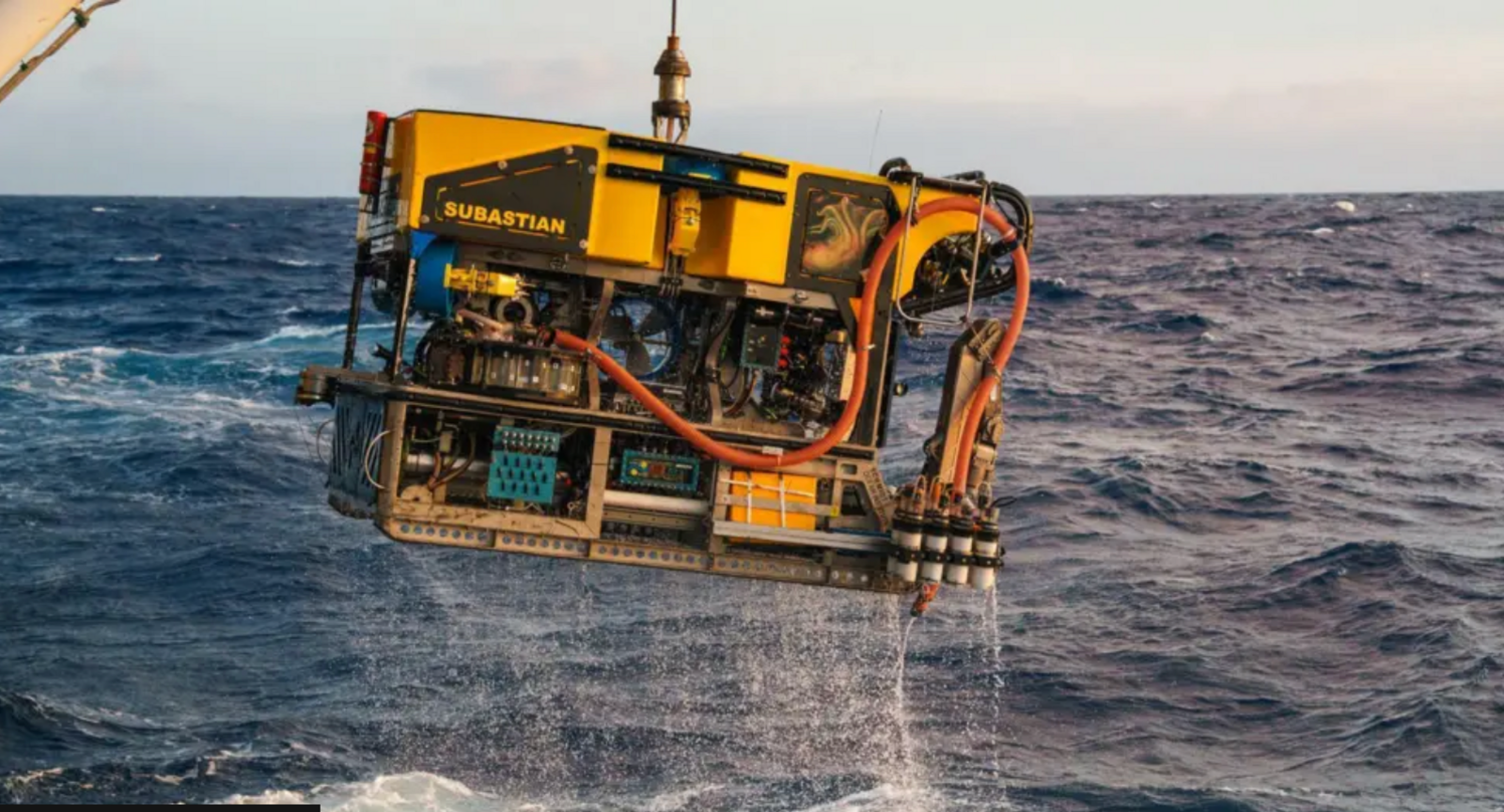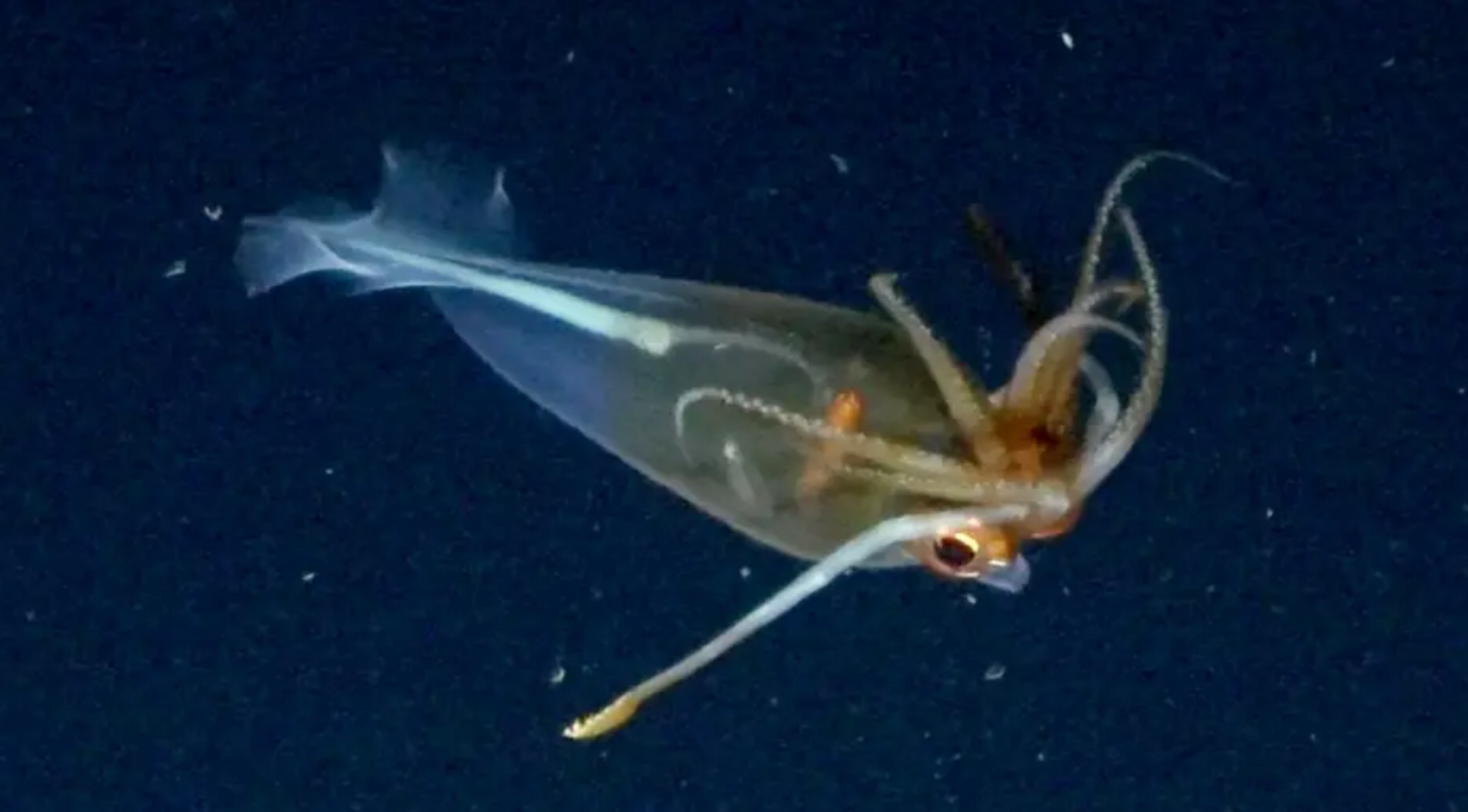Colossal squid caught on camera for the first time ever
Footage shows colossal squid for the first time
- Published
A species of giant squid has been filmed in its natural environment for the first time - exactly 100 years after it was first identified by scientists.
It's called a colossal squid and is believed to be the largest squid species in terms of mass, weighing up to 500kg.
The team of scientists were on a 35-day quest to find new marine life, when they spotted it near the South Sandwich Islands in the south Atlantic Ocean.
But amazingly they didn't know what the squid was, and just filmed it because it was "beautiful and unusual".
They only found out it was a colossal squid later on after sending the footage away to be checked.
Giant squid swims into Japan harbour. Video, 00:00:38
- Published29 December 2015
Meet the squidbot hoping to explore the deep sea
- Published27 October 2020
'Flying spaghetti monsters' and underwater mountain found off the coast of Chile
- Published2 September 2024

The team spotted it using a special underwater camera
Experts believe this kind of squid can grow up to a huge 7 metres in length, although the one captured on camera was only a baby at 30cm-long.
The team of scientists onboard used a remote-controlled vehicle to spot it, 600m under the ocean surface.
The area that they were exploring was so remote that the closest other humans were hundreds of miles away on the International Space Station.
Dr Kat Bolstad was the person who first confirmed to the team that what they had seen was a colossal squid - a rare sighting!
She said it has never been seen alive at depth.
The Natural History Museum has even said it is hard to estimate the global population of colossal squids because sightings are so unusual that they "straddle the line between legend and reality".

It's been a year of breakthrough for the researchers who also filmed a glacial glass squid for the first time earlier this year
There are still many aspects of these squid that scientists don't know about, including how long they live for.
One thing they do know is that they lose their transparent appearance when they get older.
This is another amazing step forward for the researchers studying it. In January they also managed to film a glacial glass squid for the first time.
Dr Jyotika Virmani, Schmidt Ocean Institute's executive director said: "These unforgettable moments continue to remind us that the ocean is brimming with mysteries yet to be solved."
